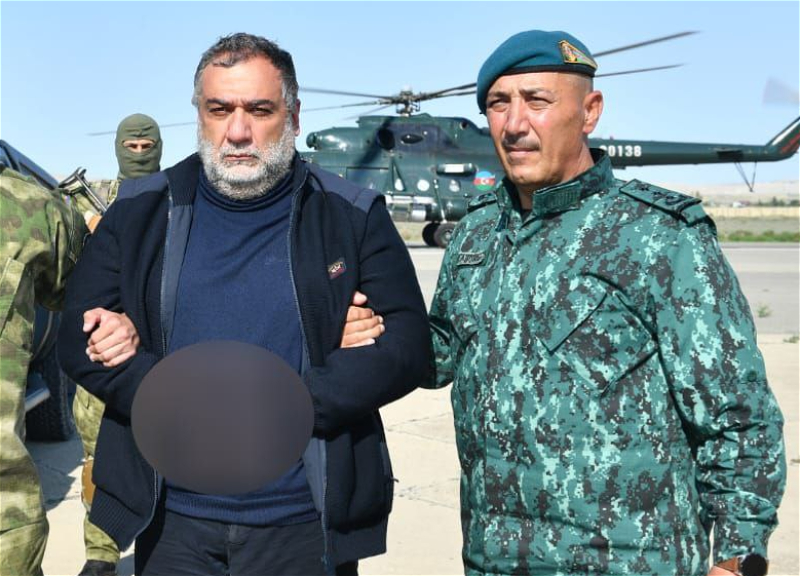EU Today: Azerbaijan’s resettlement of Karabakh region shifts into gear

Azerbaijan will begin resettling Khankendi, the capital of its Karabakh region, from September.
This will mark one year since the mountainous region was liberated by Azerbaijani forces in September 2023 in a lightning offensive, after three decades of Armenian occupation.
About 650,000 Azerbaijanis had to flee Karabakh and were displaced across the country following the First Karabakh War of the early 1990s, according to the UN refugee agency.
After winning the Second Karabakh War in 2020, Baku has begun to resettle displaced Azerbaijanis in a government programme called the ‘Great Return’.
As of August 2024, the programme, formalised in a presidential decree in November 2022, has resettled around 8 000 former Internally Displaced Persons (IDPs) in at least five cities and numerous villages.
Authorities plan to resettle about 40,000 people by 2026 with nearly $7 billion already spent on reconstruction work in Karabakh since November 2020.
In May, Azerbaijani President Ilham Aliyev announced the timetable to settle Khankendi while meeting resettled families in Khojaly, a town in Karabakh infamous for the brutal massacre of over 613 civilians by Armenian forces in during the night of February 26, 1992 that was recognised by a dozen states as an act of genocide.
A group of 24 families have returned home to Khojaly after 32 years, including 88 individuals who had been temporarily settled in dormitories, sanatoriums, pioneer camps, unfinished buildings and administrative offices across Azerbaijan.
The first phase of Khojaly’s reconstruction includes two sections: one covering 167 hectares and the other 18 hectares. Construction, repair, restoration, and landscaping works are underway on the 167 hectares, encompassing 140 individual houses, 48 cottage-style houses, and 110 apartments across nine buildings.
All underground communication lines have been laid, and connections have been provided to the first 50 houses. 90 percent of the communication work throughout the city has been completed. Additionally, on the 18-hectare area, work is being carried out on 92 Finnish-style houses.
In response to a resident who told Aliyev that he wished to visit Khankendi, where the man said he had once been held captive, the president replied: “Go and see these places. Because resettlement in Khankendi will begin in September”.
“The first to move will be students and their teachers,” Aliyev said. “Karabakh University will begin its activities.”
Karabakh University was established in Khankendi by a presidential order at the end of 2023. It will commence operations in the academic year 2024-2025, and will accommodate about 1,200 students initially, growing to about 5,000 in 5 years.
Khankendi was nearly emptied by the Second Karabakh War. Only a few hundred people remained a month after the civilian exodus in 2023, according to the International Committee of the Red Cross.
In March, Azerbaijani state television broadcast footage showing mechanical diggers destroying the building in Khankendi that once housed the breakaway ethnic Armenian parliament.
In May, about 60 Azerbaijani families were resettled in the city of Shusha. According to Kerim Kerimli, one of the first residents who moved there after the construction of residential complexes in Shusha, initially it was families of martyrs and veterans who were resettled in the city, followed by families living in difficult conditions in dormitories, sanatoriums, unfinished buildings, and premises in a dilapidated state.
He mentioned that houses were allocated by lottery, and the State Committee for Refugees and IDPs provided transportation “free of charge to Shusha.”
Kerim Kerimli noted that Shusha now has shops from three major chains, as well as four hotels, a dormitory, restaurant, museums, the Shusha State Reserve and government buildings.
He also mentioned that a clinic and maternity hospital are operational in the city, with new medical facilities being constructed. It is expected that a school in Shusha, designed for approximately 1,000 students, will commence operations in September.
President Aliyev noted in May that resettlement would also begin in September in the ghost town of Aghdam, which had previously been a bustling town before the First Karabakh War. Located on the heavily-mined Line of Contact, Aghdam was totally destroyed in the conflict and was called ‘Hiroshima of the Caucasus’.
The biggest challenge in resettling Karabakh remains land mines. An estimated 1.5 million landmines were indiscriminately laid in the territory of Karabakh by Armenia during the conflict. The mines make it difficult for Azerbaijan to rebuild communities and resettle civilians in an area of about 12,000 sq km, four times the size of Luxembourg.
In Karabakh, 147,988 hectares are still classed as highly contaminated areas, while 675,570 hectares are considered medium and low threat areas.
“The fact that these mines were planted by Armenia indiscriminately and sometimes without any military necessity, with neither markings nor fencing, this makes de-mining more difficult and it continues to claim lives and poses a major threat to innocent civilians,” said Elchin Amirbayov, Azerbaijan’s Representative to the President for Special Assignments, in a telephone interview.
According to Vugar Suleymanov, Chairperson of ANAMA, the national mine action agency, as of today, 155,400 hectares of contaminated land had been cleared since 2020. This represents only around 13 percent of the total contaminated territory.
Clearing the land mines is as much a priority as building infrastructure. Both are going hand in hand to ensure that the wishes of IDPs to return to their ancestral homes can be implemented as soon as possible.
With the ‘Great Return’ aiming to resettle more than 100,000 returnees in Karabakh by the end of 2026, the Azerbaijani government has allocated over $11 billion for reconstruction for 2022-2026. This includes the actual reconstruction of towns and villages from scratch as well as clearing landmines to protect the lives of those who are coming back to inject life back in the liberated territories.
Source: EU Today










